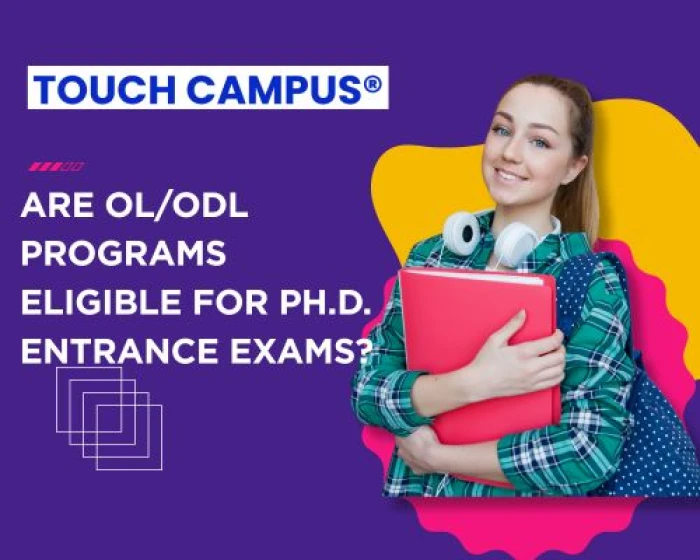Blog Body:
If you’re considering pursuing an undergraduate degree through Online Learning (OL) or Open and Distance Learning (ODL), understanding the admission requirements is the first step to a smooth application process.
These flexible education modes are perfect for working professionals, students in remote areas, or anyone who prefers a self-paced study style. Here’s everything you need to know about getting admitted.
Basic Eligibility Criteria for OL/ODL Undergraduate Programs
While specific requirements can vary slightly by university, most OL and ODL undergraduate programs share similar criteria:
Minimum Educational Qualification:
Completion of 10+2 or equivalent (e.g., intermediate, senior secondary school certificate) from a recognized board.
Minimum Marks:
Some universities may require a minimum percentage, often around 40–50%, but many are more flexible compared to regular courses.
Age Limit:
Most OL/ODL programs have no strict age limit, making them accessible to learners of all ages.
Specific Subjects:
Certain specialized undergraduate programs may require you to have studied particular subjects at the 10+2 level (e.g., Science for B.Sc. programs).
Key Documents Required at Admission
To apply, you will typically need to submit the following:
10th and 12th Mark Sheets and Certificates:
Proof of academic qualification and eligibility.
Identity Proof:
Aadhar Card, PAN Card, Passport, or any government-issued ID.
Passport-sized Photographs:
Usually 2-3 recent photos for records.
Domicile Certificate (if applicable):
Required by some universities to verify residency for reservation or fee concession.
Caste Certificate (if applicable):
For candidates applying under reserved categories.
Transfer Certificate / Migration Certificate:
Needed by some universities if you are migrating from another institution.
Application Process Highlights
Online Application:
Most OL/ODL institutions allow you to apply online by filling out a form on their official website.
Application Fee Payment:
A nominal fee is charged, payable via online payment modes.
Submission of Documents:
Upload scanned copies or submit physical documents as per university guidelines.
Entrance Exam:
Generally, OL/ODL undergraduate programs do not require an entrance exam, but this may differ for specialized courses or certain universities.
Important Tips to Remember
Check University Accreditation:
Ensure the university offering OL/ODL programs is UGC-approved to secure a valid degree.
Deadlines Matter:
Keep track of application opening and closing dates to avoid missing admissions.
Clarify Course-specific Requirements:
Some programs may have additional criteria or prerequisites.
Prepare Your Documents in Advance:
Having original and scanned copies ready will speed up your application.
Why Choose OL/ODL Undergraduate Programs?
Flexibility to study alongside jobs or other commitments
Access to quality education regardless of location
Cost-effective and convenient learning options
Wide variety of courses across disciplines
Final Words
Admission to OL or ODL undergraduate programs is designed to be straightforward, making higher education accessible to more people. By fulfilling basic eligibility criteria and submitting the right documents, you can kickstart your journey toward a recognized degree while balancing your lifestyle







